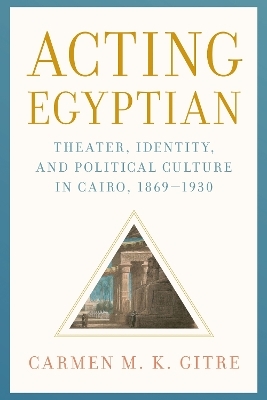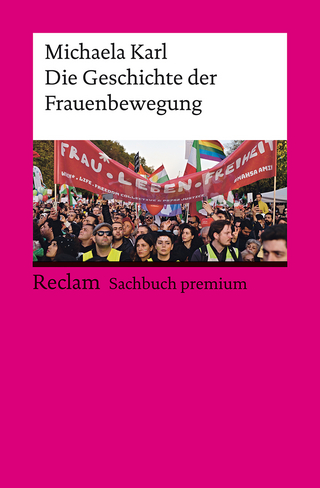
Acting Egyptian
Theater, Identity, and Political Culture in Cairo, 1869–1930
Seiten
2019
University of Texas Press (Verlag)
978-1-4773-1918-5 (ISBN)
University of Texas Press (Verlag)
978-1-4773-1918-5 (ISBN)
Putting the spotlight on theatrical performance and cultural identity in Cairo at the turn of the last century, a historian reveals new aspects of the transition from the Ottoman to the British regimes on Egypt’s path to self-rule.
In the late nineteenth and early twentieth centuries, during the “protectorate” period of British occupation in Egypt—theaters and other performance sites were vital for imagining, mirroring, debating, and shaping competing conceptions of modern Egyptian identity. Central figures in this diverse spectrum were the effendis, an emerging class of urban, male, anticolonial professionals whose role would ultimately become dominant. Acting Egyptian argues that performance themes, spaces, actors, and audiences allowed pluralism to take center stage while simultaneously consolidating effendi voices.
From the world premiere of Verdi’s Aida at Cairo’s Khedivial Opera House in 1871 to the theatrical rhetoric surrounding the revolution of 1919, which gave women an opportunity to link their visibility to the well-being of the nation, Acting Egyptian examines the ways in which elites and effendis, men and women, used newly built performance spaces to debate morality, politics, and the implications of modernity. Drawing on scripts, playbills, ads, and numerous other sources, the book brings to life provocative debates that fostered a new image of national culture and performances that echoed the events of urban life in the struggle for independence.
In the late nineteenth and early twentieth centuries, during the “protectorate” period of British occupation in Egypt—theaters and other performance sites were vital for imagining, mirroring, debating, and shaping competing conceptions of modern Egyptian identity. Central figures in this diverse spectrum were the effendis, an emerging class of urban, male, anticolonial professionals whose role would ultimately become dominant. Acting Egyptian argues that performance themes, spaces, actors, and audiences allowed pluralism to take center stage while simultaneously consolidating effendi voices.
From the world premiere of Verdi’s Aida at Cairo’s Khedivial Opera House in 1871 to the theatrical rhetoric surrounding the revolution of 1919, which gave women an opportunity to link their visibility to the well-being of the nation, Acting Egyptian examines the ways in which elites and effendis, men and women, used newly built performance spaces to debate morality, politics, and the implications of modernity. Drawing on scripts, playbills, ads, and numerous other sources, the book brings to life provocative debates that fostered a new image of national culture and performances that echoed the events of urban life in the struggle for independence.
Carmen M. K. Gitre is an assistant professor of history at Virginia Tech University. She holds a PhD in history from Rutgers University and previously taught in the international studies and history departments at Seattle University.
Acknowledgments
Note on Transliteration
Introduction
Chapter 1. Aida in Egypt
Chapter 2. How to Be an Effendi
Chapter 3. The Story of Ahmad the Rat
Chapter 4. Cabarets and the Mothers of the Nation
Conclusion
Notes
Bibliography
Index
| Erscheinungsdatum | 03.12.2019 |
|---|---|
| Zusatzinfo | 6 b&w photos |
| Verlagsort | Austin, TX |
| Sprache | englisch |
| Maße | 152 x 229 mm |
| Gewicht | 454 g |
| Themenwelt | Kunst / Musik / Theater ► Theater / Ballett |
| Sachbuch/Ratgeber ► Geschichte / Politik ► Allgemeines / Lexika | |
| Geisteswissenschaften ► Geschichte ► Regional- / Ländergeschichte | |
| ISBN-10 | 1-4773-1918-2 / 1477319182 |
| ISBN-13 | 978-1-4773-1918-5 / 9781477319185 |
| Zustand | Neuware |
| Haben Sie eine Frage zum Produkt? |
Mehr entdecken
aus dem Bereich
aus dem Bereich
die Reise der Menschheit : zwischen Aufbruch und Scheitern
Buch | Softcover (2023)
Ullstein Taschenbuch Verlag
14,99 €


